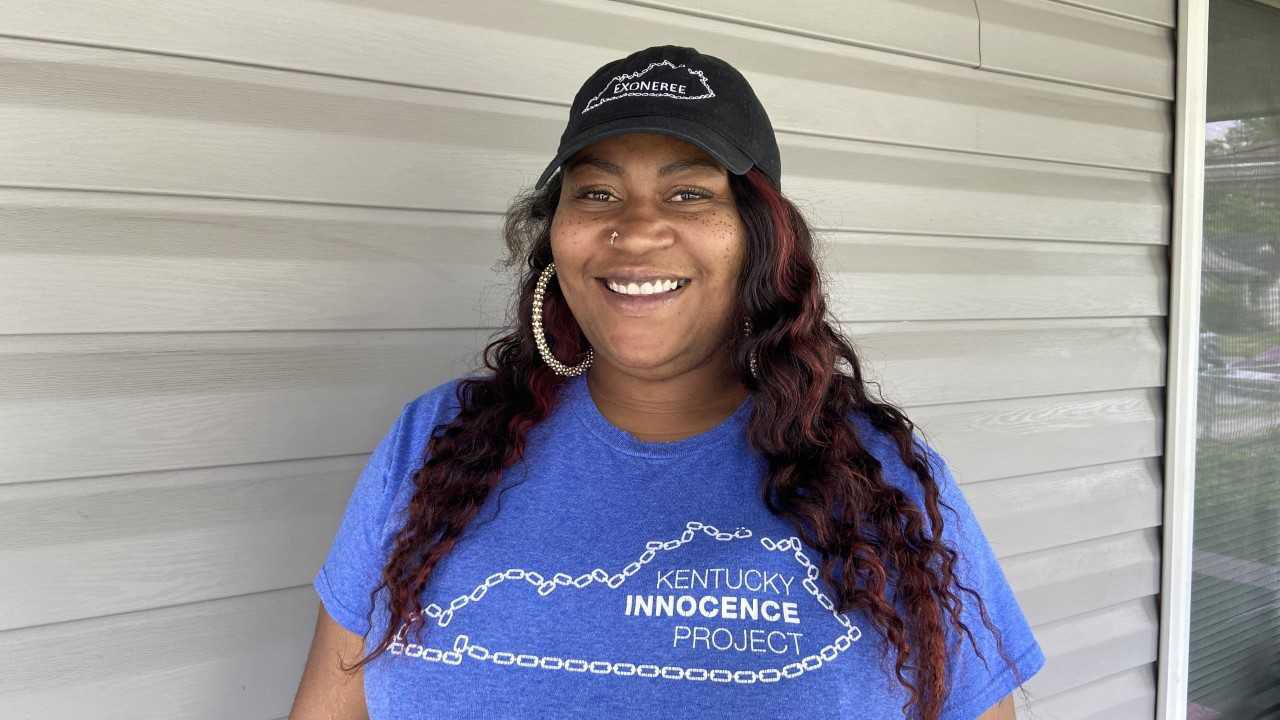BY KENTUCKY
LOUISVILLE, Ky. — Johnetta Carr was 16 when she was arrested for the 2005 murder of her boyfriend in Louisville.
“You’re in a bad dream that you can’t wake up from because this is not your reality,” Carr recalled. “I was a 16-year-old teenager living life, enjoying life. Not a criminal.”
Court documents show she later entered an Alford plea to second-degree manslaughter, which means she pleaded guilty while maintaining her innocence.
Carr was paroled in 2009 and immediately got to work on clearing her name, she said.
In 2019, she wrote to then-Gov. Matt Bevin asking for a pardon.
The Kentucky Innocence Project had just taken up Carr’s case when Bevin granted her request.

“Johnetta Carr is a strong and highly motivated woman with a very bright future,” Bevin wrote. “I am confident that she will contribute in powerful ways to society as a whole and to those in her community specifically. God clearly has His hand on her.”
“I felt like a weight was kind of lifted off my shoulders and I’m grateful to him for stepping up and bringing me some sort of justice,” she said.
While the pardon doesn’t explicitly say Carr is innocent, directing attorney Suzanne Hopf with the Kentucky Innocence Project has no doubt.
“Oh absolutely,” said Hopf. “In fact, when we assessed all these cases, her case stood out to me as Johnetta being most likely the most innocent person of these 1,700 cases that we had in the whole pool of cases.”
According to a letter to Bevin from the Kentucky Innocence Project, “there was no physical evidence, witnesses or DNA connecting” Carr to the crime.
Now Carr, who is listed in the National Registry of Exonerations, is focused on getting a bill passed that would allow for compensation for those wrongfully convicted, including $65,000 for each year of imprisonment and a certificate of innocence from court.
While most states have laws to compensate the wrongfully convicted, Kentucky is not one of them, according to information from the Innocence Project.
Rep. Jason Nemes (R, Louisville) was the sponsor of House Bill 571, which would require someone to prove their innocence to be compensated, he said.
“We don’t want it to be just because you’ve been released to get access to it,” said Nemes. “You have to prove your innocence, but we do want it to be difficult to do but possible. And so when someone can surpass that hurdle, I think it’s the right thing to do that Kentuckians recognize that something’s been taken from them that ought not to have been taken and we need to compensate that.”
House Bill 571 had bipartisan sponsorship during this year’s legislative session. Nemes expects to continue discussion on the legislation and file a similar version next year.
To this day, Carr still has to carry her pardon with her into job interviews, she said.
She wants lawmakers to take action to help those still trying to put their lives back together.
“There’s no amount of money that you could put on the four years that I lost of my life, innocently,” said Carr. “There’s no amount of money that can give me all the hugs that I missed from my mom. There’s no amount of money that can give me the memories that I missed making with my friends.”
